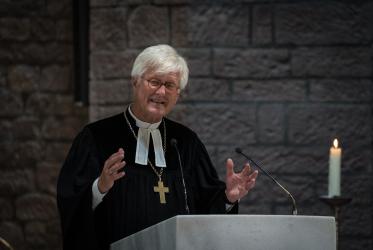Deutschland
Christianity spread through the area of Germany from the 3rd to the 12th century. In 1517, Martin Luther issued his 95 Theses at Wittenberg, which signalled the start of the Protestant Reformation. Today, Christians are about equally divided between Catholics and Protestants (of the territorial Lutheran, Reformed, and United churches), with a sizeable Orthodox minority (mostly due to immigration) and a number of Free churches, including Protestants as well as Pentecostals and others.
Most of the Orthodox churches are indirect members of the WCC through their Patriarchate, the Moravians and Anglicans through their wider church structures, and the Methodists through the United Methodist Church of which they are part.
The Council of Christian Churches in Germany is the ecumenical body, which includes the Catholic Church. The German Evangelical Alliance groups Evangelical Christians in the territorial churches and the Free churches, and is affiliated with the WEA. In 2000, the number of Evangelicals, Pentecostals and Charismatics was estimated at 6.3 percent of the total number of Christians.
More on Germany:
Ecumenical solidarity visit to Germany
An international "Living Letters" team with representatives of WCC member churches visited Germany from 27 June to 4 July 2008 in order to share experiences in overcoming violence and to encourage each other in these efforts. Read more about the visit to Germany...
Migrant churches in Germany
A video in the series "WCC member churches on the ground" portrays migrant churches in Hamburg.
A photo essay om migrant churches in Frankfurt, Germany can be viewed on the "Keeping the Faith" website.






